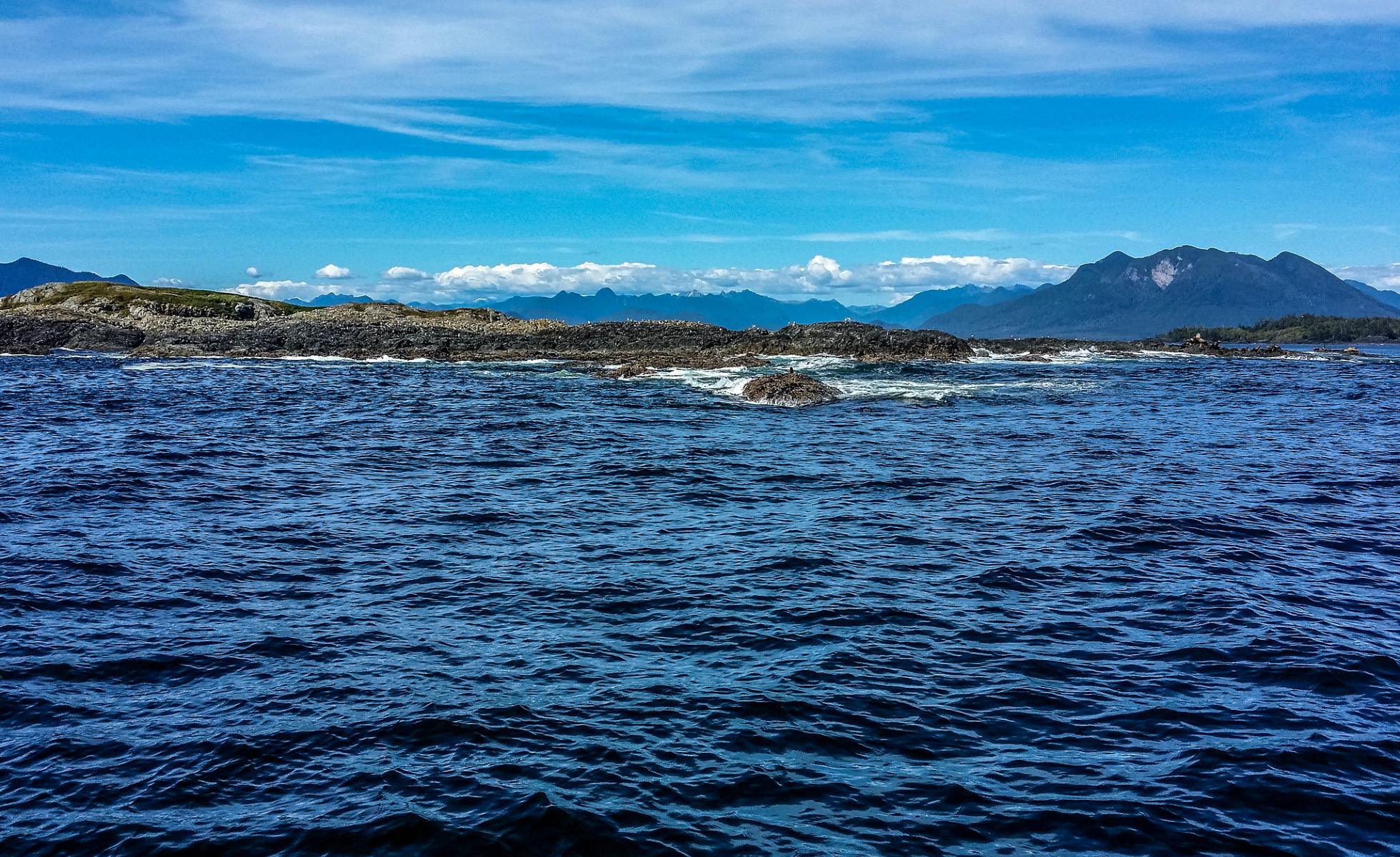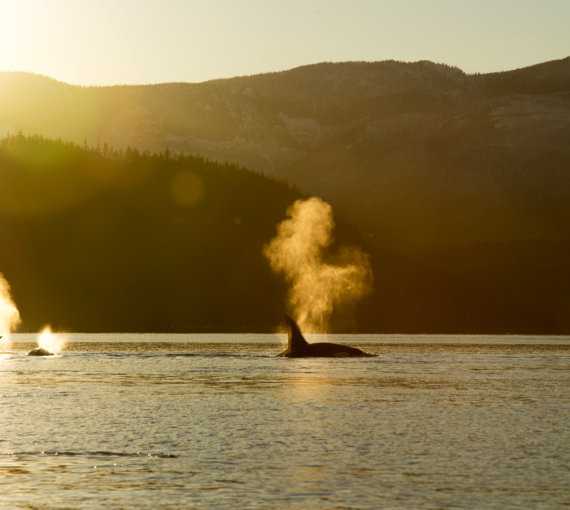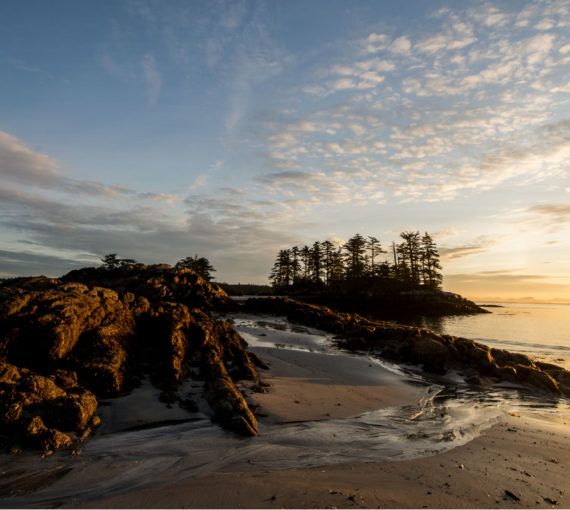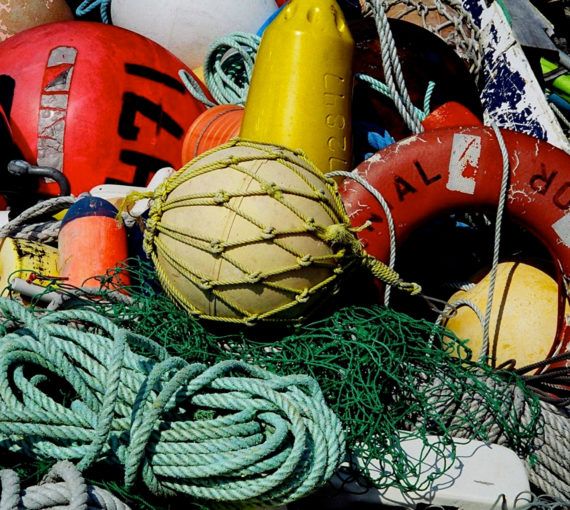
All life on Earth depends on healthy oceans. (Photo: Fyre Mael via Flickr)
Bernadette Jordan, the minister of Fisheries, Oceans and the Canadian Coastguard, has tough decisions to make about the ocean economy. After six months of consultations, Canada is at a crossroads. When considering the twin crises of climate change and biodiversity loss, only one path is truly feasible.
A blue-economy strategy must prioritize conservation and restoration to ensure healthy marine ecosystems can sustain marine life, and human dependence on marine resources, for the long term.
Canada’s pursuit of a blue-economy strategy comes from a promise it made, along with 13 other countries, to sustainably manage 100 per cent of ocean waters, so it should also align with our international commitments to climate action and protection of 30 per cent of our oceans by 2030.
“Sustainable management” is ripe for interpretation. Together, 18 national and regional environmental organizations have set an expectation for what that means for a blue-economy strategy. It starts with respecting Indigenous rights and the natural environment. It includes integrating local and Indigenous knowledge into planning and decision-making. It must aggressively pursue an approach that protects and restores the oceans without trying to justify the restriction of destructive industrial activities such as offshore oil and gas exploration and extraction, deep-seabed mining, overfishing, and harmful aquaculture practices.
Evidence to show that destroying nature also threatens economic prosperity is mounting. Biodiversity loss is among the Top 5 risks to the global economy, according to the World Economic Forum. Disappearing sea ice, warming oceans, and unsustainable human activity are rapidly destroying critical habitat. Without significant changes, more than half the world’s marine species may go extinct by 2100. Our coastal communities are the first to suffer these consequences of climate change and oceanic degradation.
With the world’s longest coastline, Canada can become a blue-economy leader.
With the world’s longest coastline, Canada can become a blue-economy leader. Now is the time to capitalize on growing pressure to reset our ocean economy by reversing nature loss by 2030 and fully recovering by 2050. This month, G7 leaders, including Canada, stated that the world must become carbon-neutral, nature-positive, and inclusive for all. While Canada is a leader in knowledge generation and international commitments, it must walk the talk to make a nature-positive future the reality at home.
A blue-economy strategy that emphasizes protection and restoration can boost the oceans’ ability to adapt to and mitigate climate change. Investing in the restoration and protection of the oceans and coastal ecosystems will create jobs at a rate comparable to or greater than that of industrial projects. Conservation projects also create long-term economic benefits by boosting fisheries, coastal tourism, and water quality.
Well-functioning marine ecosystems have more value than the monetary benefits reaped from economic activity. All life on Earth depends on healthy oceans. They absorb one-quarter of the carbon humans put into the atmosphere annually. They produce more than 70 per cent of Earth’s oxygen and contain 99 per cent of its living organisms.
Let’s change the way we think about how both the economy and nature can sustain future generations. In addition to following ecological principles, Canada’s blue-economy strategy must support and directly benefit local communities. Decisions about managing resources should incorporate all of nature, including humans, and we should continually learn from the consequences of those decisions.
Let’s start with measuring success by the well-being of humans and ecosystems, rather than the size of a country’s gross domestic product. Canadians would benefit from a blue economy that includes social, cultural, and environmental values. The government can achieve this by applying standards of the recently published quality-of-life framework to existing and future ocean-related activities.
If we fail to protect and restore the oceans, our economy will also fail. Canada needs a hopeful roadmap to an economic future where the oceans, climate, and people thrive together.
This op-ed was originally published on iPolitics
Our work
Always grounded in sound evidence, the David Suzuki Foundation empowers people to take action in their communities on the environmental challenges we collectively face.



